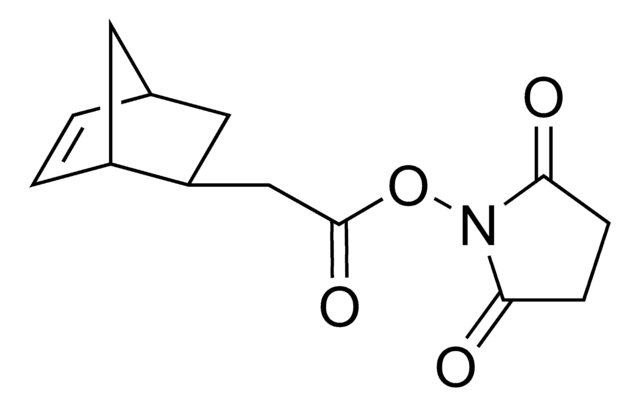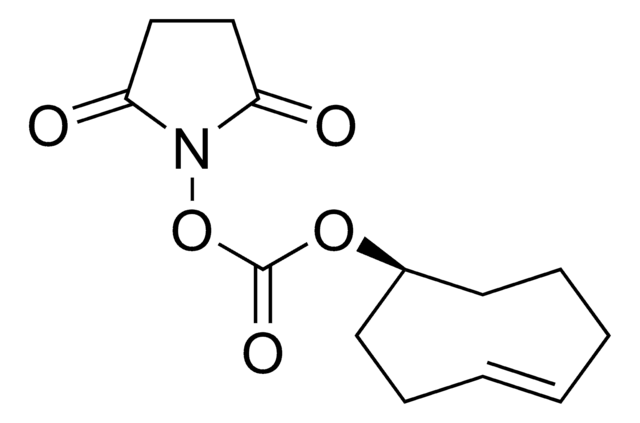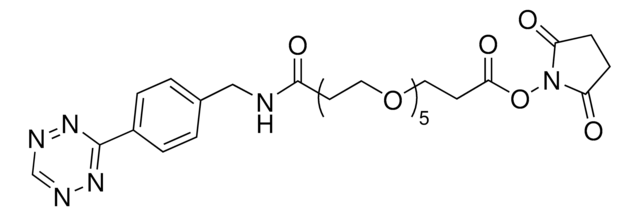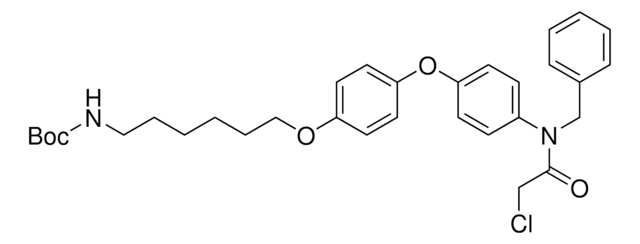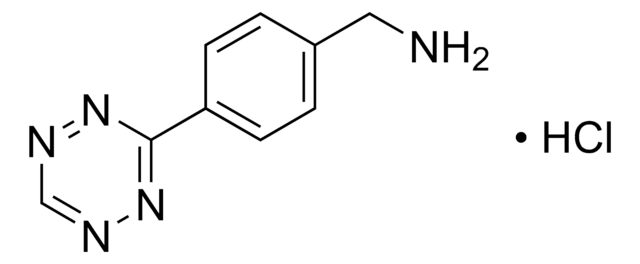924075
NHS ester-a-TCO
Synonym(s):
(E)-N-Hydroxysuccinyl 2-(1-ax-hydroxycyclooct-4-en-1-yl)acetate, 2,5-Dioxopyrrolidin-1-yl (R,E)-2-(1-hydroxycyclooct-4-en-1-yl)acetate, Amine-reactive axial 5-hydroxy-trans-cyclooctene
About This Item
Recommended Products
reaction suitability
reaction type: click chemistry
reactivity: amine reactive
reagent type: chemical modification reagent
reagent type: cross-linking reagent
Quality Level
functional group
NHS ester
storage temp.
−20°C
SMILES string
O[C@@]1(CC(ON2C(CCC2=O)=O)=O)CC/C=C/CCC1
InChI key
HKYXURAVXKJCHH-AWEZNQCLSA-N
Application
Other new a-TCOs:
- TAMRA-a-TCO (924083)
- Alkyne-a-TCO (924091)
- Amine-a-TCO (924113)
Storage Class Code
11 - Combustible Solids
WGK
WGK 3
Flash Point(F)
Not applicable
Flash Point(C)
Not applicable
Choose from one of the most recent versions:
Certificates of Analysis (COA)
It looks like we've run into a problem, but you can still download Certificates of Analysis from our Documents section.
If you need assistance, please contact Customer Support.
Already Own This Product?
Find documentation for the products that you have recently purchased in the Document Library.
Our team of scientists has experience in all areas of research including Life Science, Material Science, Chemical Synthesis, Chromatography, Analytical and many others.
Contact Technical Service

